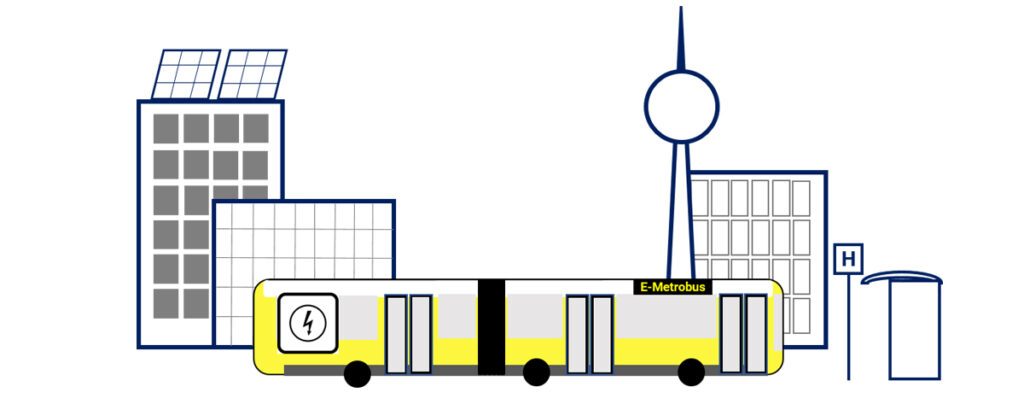RLI analyzes energy supply for electric buses of Berlin’s public transport
March 1st 2019 | Reiner Lemoine Institute (RLI) is a partner in the E-MetroBus research and development project. The project, led by Berliner Verkehrsbetriebe (BVG), aims to test short-time charging under the conditions of the high-frequency bus service in Berlin. While TU Berlin, as a further scientific partner in the project, is responsible for accompanying research for the line 200, on which the BVG will test fifteen electric articulated buses starting summer 2020, RLI is developing various scenarios as to how a local, network-related supply of the charging stations on the route and in the depot can be achieved.
In concrete terms, the RLI is investigating the consequences that an electrification of the entire BVG bus fleet of 1,400 vehicles would have on the local power grid. The energy systems will be modeled in software to simulate the future supply of the charging points. In various analyses, their topology is then optimized under economic and ecological aspects. In order to relieve the load on the local power grid, the use of renewable energy systems and their integration into intelligent grids, which regulate consumption and generation in the grid according to energy requirements, will be examined in detail.
The project is part of the RLI Research Unit Mobility with Renewable Energy and is headed by Norman Pieniak. E-MetroBus is funded by the Federal Ministry of Transport and Digital Infrastructure with a total of 5.6 million euros within the framework of the Electromobility Funding Directive. The implementation of the funding directive is coordinated by NOW (National Organisation for Hydrogen and Fuel Cell Technology).
Please find further information in the BVG press release and on the RLI project page.
